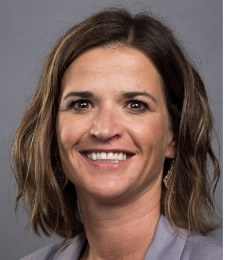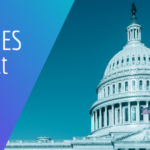I’m thrilled to announce that Bedard Law Group is the new sponsor for the Compliance Digest. Bedard Law Group, P.C. – Compliance Support – Defense Litigation – Nationwide Complaint Management – Turnkey Speech Analytics. And Our New BLG360 Program – Your Low Monthly Retainer Compliance Solution. Visit www.bedardlawgroup.com, email John H. Bedard, Jr., or call (678) 253-1871.

Every week, AccountsRecovery.net brings you the most important news in the industry. But, with compliance-related articles, context is king. That’s why the brightest and most knowledgable compliance experts are sought to offer their perspectives and insights into the most important news of the day. Read on to hear what the experts have to say this week.
Ninth Circuit Upholds Ruling Over Lack of Time-Barred Disclosure in Letter
The Court of Appeals for the Ninth Circuit has affirmed a lower court’s ruling that a defendant did not violate the Fair Debt Collection Practices Act when it sent a letter to an individual in an attempt to collect a time-barred debt, but did not mention the debt was time-barred or that a partial payment could revive the statute of limitations. More details here.

WHAT THIS MEANS, FROM RICK PERR OF KAUFMAN DOLOWICH VOLUCK: Thought to be one of the most consumer-friendly Courts of Appeals in the country, the Ninth Circuit shockingly sided with the collection agency defendant in holding that the FDCPA did not require a time-barred debt disclosure where the collection letter merely sought to resolve the outstanding obligation. This runs contrary to decisions in the Sixth and Seventh Circuits as well as the position taken by the CFPB. The decision is not a precedental ruling and, by local rule, cannot be cited. However, it continues a welcome trend of common sense rulings that do not expand the FDCPA to encompass concepts found nowhere in its text.
THE COMPLIANCE DIGEST IS SPONSORED BY:

Illinois Takes More Steps to Regulate Debt Collection During COVID-19
The state of Illinois Department of Financial and Professional Regulation issued guidance yesterday recommending practices that licensed consumer credit companies should putting into place to help individuals dealing with the coronavirus pandemic, including those related to how debts are collected, while Illinois Gov. J.B. Pritzker signed a separate executive order suspending certain remedies used by judgment creditors to collect on unpaid debts. More details here.

WHAT THIS MEANS, FROM HELEN MAC MURRAY OF MAC MURRAY AND SHUSTER: The Illinois Department of Financial and Professional Regulation (DFPR) has issued guidance it is calling “Best Practices.” Typically, best practices are ethical standards that a business or an industry sector promotes and don’t equate into legal requirements. Although debt collectors must comply with the Governor’s Executive Orders, agency guidance may not be enforceable. Likely realizing that, the DFPR notes at the end of its guidance that it will be “carefully examining” lending and collection activity during the pandemic and quick discipline awaits those that “harm consumers.” No guidance on what “consumer harm” means or the laws that prohibit it. Some may think this kind of “guidance” is pretty heavy-handed. Actually, its no surprise being that the Secretary of DFPR is Deborah Hagan, famed chief of consumer protection under many Illinois AGs.
State AGs Ask CFPB to Withdraw Credit Reporting Guidance
Attorneys general from nearly two dozen states, the District of Columbia, and Puerto Rico wrote a letter yesterday to Kathleen Kraninger, the director of the Consumer Financial Protection Bureau, requesting that the agency withdraw its guidance for how debts should be reported to the credit bureaus during the COVID-19 pandemic. More details here.

WHAT THIS MEANS, FROM VIRGINIA BELL FLYNN OF TROUTMAN SANDERS: Attorneys general from nearly two dozen states, the District of Columbia, and Puerto Rico wrote to the Consumer Financial Protection Bureau (CFPB) this week, requesting that the agency withdraw its guidance for how debts should be reported to credit bureaus during the COVID-19 pandemic. They argued that the CFPB should not be watering down protections offered by the Coronavirus Aid, Relief, and Economic Security (CARES) Act. Specifically, they asked the CFPB to step back from its announcement that it will not enforce a provision of the CARES Act that requires lenders to continue reporting loans as current if they are subject to a forbearance or other accommodation, as long as the loans were current before the accommodation was made, and that it will give entities more leeway to investigate consumer disputes. The CFPB had announced that companies could take longer to complete their investigations if consumers provide additional relevant information and if the credit reporting agency (CRA) was “making good faith efforts” to investigate as quickly as possible – which the attorneys general take issue with, particularly during this crisis.
We expect to see a lot of action on the AG and government agency side as it relates to potential anti consumer actions taken by the government and companies.
Washington State Issues Proclamation Regulating Debt Collection
Add Washington to the growing list of states and territories that have taken action to regulate debt collection activities in the wake of the coronavirus pandemic. More details here.
Oregon Enacts Order Regulating Certain Collection Activities
Gov. Kate Brown, the governor of Oregon, has issued an Executive Order that prohibits funds deposited into the bank accounts of individuals from the Coronavirus Aid, Relief, and Economic Security Act (CARES Act) from being seized by an active garnishment, including those obtained by debt collectors. More details here.
States Take Steps to Protect Stimulus Funds From Collectors
One of my most favorite TV shows ever is “The West Wing.” In one episode, President Bartlet participates in a town hall meeting discussing the need for a constitutional amendment that would make flag burning illegal. During the meeting, as people are giving passionate speeches about the importance of the flag and all it stands for, President Bartlet says, “There is a population in this country that seems to focus so much time and energy into this conversation, so much so that I am forced to ask this question – is there an epidemic of flag burning going on that I’m not aware of?” I am reminded of that quote as I see a growing number of articles that discuss the importance of protecting the economic stimulus checks being sent to Americans from debt collectors. Is there an expectation that debt collectors are just waiting by the mailboxes of Americans waiting to take that check as soon as it is delivered? More details here.

WHAT THIS MEANS, FROM DENNIS BARTON OF THE BARTON LAW GROUP: Stephen Covey wrote about the circle of control and circle of influence in his book “The Seven Habits of Highly Effective People.” The circle of control is the universe of things over which you have power to change. If something is in your circle of influence, you cannot directly change it, but you may be able to indirectly alter the outcome. Any outside of those two circles, you have no control and no influence.
A lot of politicians and regulators are trying to place constraints upon the collection industry. Places like Nevada, Massachusetts, and Washington, D.C. ,prohibit most or all attempts to collect consumer debts. In Illinois, the governor ceased evictions, repossessions, and the service of garnishments. Oregon’s governor recently prevented seizure of stimulus payments. Currently, there are bills in Ohio, South Carolina, and New Jersey to add a variety of restrictions in those states.
All of these additional state regulations add barriers and fears for creditors and collectors alike during an already scary time. Fortunately, some aspects fall within in our circle of control. While we cannot keep laws from taking effect, we can control our reactions. We can effectively educate ourselves by looking to tools provided by organizations such as ACA International, modify our procedures, effectively communicate these changes to our employees, and update our collection software.
Our circle of influence includes our ability to reach out to federal and state legislators and regulators to help them understand what we do and how well-intended restrictions may actually harm consumers. We can make our voices known individually by calling, emailing, tweeting, or posting a message on a politician’s website. We can also share stories of positive interactions with our consumers. ACA is asking for these stories so that they can be collected and distributed.
Overall, it is easy to be stressed to the max trying to keep up with changing laws and then responding to them. You must remember while there are limits on what we can do, we should capitalize on the things over which we have control or influence. That will allow us to maximize our positive response to a difficult and rapidly evolving landscape.
Wisconsin Regulator Issues Warning to Collectors in Form of ‘Emergency Guidance’
The state of Wisconsin yesterday became the latest state to try and protect its consumers via emergency regulations that restrict how debts are collected there, but while it did not include any specific measures, the state’s Department of Financial Institutions did make some eye-opening claims and threats. More details here.

WHAT THIS MEANS, FROM BRIT SUTTELL OF BARRON & NEWBURGER: The Emergency Guidance from Wisconsin’s Department of Financial Institutions is certainly strongly worded, but I believe that debt collection firms and agencies were already acutely aware of the effect the pandemic has on consumers. Interestingly, the DFI’s statement provides very little actual guidance which is a very different approach than Wisconsin’s neighbor, Illinois. Debt collection firms and agencies are struggling in their own way and many clients have put restrictions in place regarding the actions their collectors can take. While the Emergency Guidance is focused on the immediate pandemic, the economic impact of the crisis will be felt for quite some time and that is something with which debt collectors will need to grapple with – how to continue the compassionate questioning even when collection restrictions have been lifted. Now is a good time for debt collectors to be forward-thinking about new approaches with consumers who may not be affected right now, but as a result of the impending economic downturn.
Judge Grants MSJ For Defense in FDCPA Case Over Disputed Debt
A District Court judge in Michigan has granted a defendant’s motion for summary judgment after it was sued for allegedly violating the Fair Debt Collection Practices Act because it reported to a credit bureau that the investigation into a disputed debt had been completed even though the plaintiff “still disputed the debt.” More details here.

WHAT THIS MEANS, FROM DAVID SCHULTZ OF HINSHAW CULBERTSON: Despite the abundance of FDCPA and FCRA litigation, there are not many cases that dig into the nuances of coding disputes. Foster v Afni is the exception. Foster sent a one sentence dispute to Afni. In response, Afni updated its report with an XB code, i.e., a dispute has been received and an investigation was being conducted. Afni concluded the investigation, determined there was no error and updated the tradeline with an XH designation, i.e., there was a dispute and the investigation was complete. Afni thereafter sent a letter to the Foster, confirming it investigated the matter and verified the debt. Foster did not respond – other than to file this FDCPA lawsuit.
The court granted summary judgment to Afni. First, the court analyzed the Article III standing issue. It determined there was no “concrete injury.” However, it held that the alleged FDCPA violation of 1692e(8) was sufficient to confer standing.
Second, the court addressed whether Afni violated §1692e(8) by supposedly communicating credit information it knew or should be known to be false, including the failure to communicate that a disputed debt was disputed. Plaintiff claimed this was violated because the XH code was false. She argued that stating the account was “previously” in dispute suggests that Plaintiff no longer disputes the debt when in fact she does. Plaintiff argued Afni should have continued using code “XB” or possibly switched to code XC, which provides that the investigation is complete but the debtor disagrees with the result.
The court rejected these arguments. XB was not right because the investigation was over. As to the XC code, the court reasoned that it applies when the consumer disagrees with the outcome of the investigation, but here, Afni had no way of knowing whether the plaintiff disagreed with the outcome of the investigation because the plaintiff never told it that she disagreed. Consequently, the court held there is no genuine issue of material fact as to whether Afni provided false or misleading information in violation of §1692e(8) by changing its code from “XB” to “XH” following the conclusion of its investigation.
The case is a must read because it contains a rare discussion of the coding furnishers use when they receive a dispute, conduct an investigation and then conclude the investigation.
Judge Dismisses Cases Where Plaintiff Sued Collector After Each Phone Call
In a case that was first noted by TCPAWorld, a District Court judge in Rhode Island has dismissed 21 of 22 lawsuits filed by a plaintiff who, for the most part, used each phone call he received from a debt collector to file lawsuits against the company alleging it violated the Fair Debt Collection Practices Act by calling him after he had revoked consent to be contacted. More details here.

WHAT THIS MEANS, FROM LAUREN BURNETTE OF MESSER STRICKLER: This case obviously presents an extreme example, but claim-splitting is alive and well and becoming increasingly popular as plaintiffs and their attorneys try to side-step the FDCPA’s “per action” recovery scheme. This opinion illustrates one option for challenging split claims, but few cases are as blatant as this one. For those less obvious circumstances, consider other ways to bring claim-splitting to the court’s attention: designate the cases as “related” when you remove them to federal court, which greatly increases the likelihood of your cases being assigned to the same judge. Ask your opponent to consent to consolidation of all matters — if they refuse, raise the issue during your initial conference with the court — most judges prefer fewer cases on their dockets, and will press plaintiffs to explain why two lawsuits are better than one. For agencies who routinely see specific lawyers splitting consumers’ claims, be prepared to bring this pattern to the court’s attention as well. Not only will you successfully call attention to your opponent’s tactics, but you will establish yourself as the more pragmatic party in the court’s eyes (which is always beneficial in the context of litigation) which itself may discourage repeat behavior in future cases.
Cautionary Tale of What Happens When Attempting Garnishment During a Pandemic
A published report from West Virginia details a case in which a county judge has issued an emergency order requiring a healthcare provider in the state to release and unfreeze assets which it had seized as part of a garnishment order, ruling that a seizure conducted while courts are closed and a stay at home order has been issued “violates due process of law.” More details here.

WHAT THIS MEANS, FROM BRENT YARBOROUGH OF MAURICE WUTSCHER: The article above contains two links, each of which reflects a different risk that must be considered when taking action during the current emergency. The court’s order demonstrates the legal risk. It is difficult enough to track various state and local laws, which can change by the hour. Creditors and collectors must also consider the overall legal environment. Even where post-judgment execution is not prohibited, restricted access to the courts could impact the propriety of pursuing certain remedies. The newspaper story demonstrates the reputational risk. Negative press coverage affects more than your standing in the community. It can also make you a target for regulators and litigants.
FCC Rolls Out Reassigned Database Guidelines
The Federal Communications Commission on Thursday released some of the guidelines that will be used for its Reassigned Number Database, which aims to help callers identify whether a phone number it has for an individual has been reassigned to someone else. More details here.

WHAT THIS MEANS, FROM LAURIE NELSON OF PAYMENTVISION: Long-awaited guidance after in December of 2018, the Federal Communications Commission (FCC) approved the roll-out of the mobile phone number database for deactivated numbers. The guidelines provided here focus on key terms for the database and also gives more detail to the proposed costs.
The first key term confirmed by the guidance is the date used for the quarry. This will be the last date the caller is reasonably certain the consumer had the number either by way of the customer’s date of consent or the date the number was last used to reach the client. It is essential to point out the guidance states the caller must be reasonably certain. This implies that data acquired by the caller itself should be used and not dates that a previous company may have retained in previous efforts.
Following the response, terms are again defined as the simple, yes, no, and no data. The yes response would indicate that the number has been deactivated; a no response would indicate that there is no report of the number being disconnected; and the last response, no data would indicate that the carrier for the number is not yet reporting the number on the database. The only response that provides the safe harbor, which would avoid liability under the TCPA is NO; No data will not provide a safe harbor.
What this means is that for all businesses making calls regulated under the TCPA is that timely carrier compliance is vital. Once the database is established, and guidance is provided to carriers on the deadline to contribute the necessary data. In the 2018 order, the FCC confirmed that it has already taken into account the heavier burden that compliance may have on smaller carriers and indicated they would provide an additional six months for the smaller carriers to comply. The FCC defines the smaller carrier as one with 100,000 or fewer domestic retail subscriber lines, which, based on FCC’s data should only account for 5% or fewer of domestic lines. While the idea of missing only 5% of the information needed may not seem like a lot, but if the client lines that you intend to call are included within this 5%, it becomes a concern. A business affected by the delay in the information from the smaller carriers may find themselves in the position of either, with a no data response, rising liability without legal safe haven, or avoiding the calls entirely until such time the numbers are reported.
As for the costs, no substantial new news. As outlined in 2018, the plan is for the users to pay for the database itself, in the same like fashion as users fund the Do Not Call Registry; no Congressional funding will be requested. The database creation costs will still come from the providers. Ongoing, the usage costs will then be set in a manner that provides a small revenue. If in any given year, the fees collected exceed the revenue allowed, the additional funds will be allocated first to any prior years funding deficiencies, second as part of the payback to service providers who have not been paid back for their portion of the database creation costs and if any funds still remain, to future years to reduce usage fees.
To end, what this recent guidance also reminds us all is that the database is not something we can ignore, it is happening and will be something that all processes must plan on incorporating.
I’m thrilled to announce that Bedard Law Group is the new sponsor for the Compliance Digest. Bedard Law Group, P.C. – Compliance Support – Defense Litigation – Nationwide Complaint Management – Turnkey Speech Analytics. And Our New BLG360 Program – Your Low Monthly Retainer Compliance Solution. Visit www.bedardlawgroup.com, email John H. Bedard, Jr., or call (678) 253-1871.









